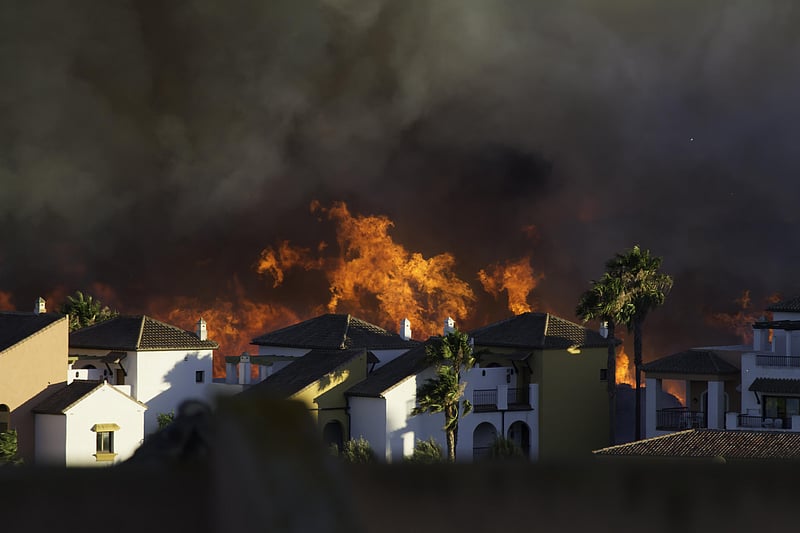Get Healthy!

- Robert Preidt
- Posted April 21, 2022
Western Wildfires Fueling Air Pollution During Summer Months
Larger and more intense wildfires in the U.S. Pacific Northwest are causing a spike in air pollution across North America that endangers millions of people, a new study warns.
Wildfire smoke has been linked to significant respiratory problems, and may also cause heart and pregnancy complications.
"Wildfire emissions have increased so substantially that they're changing the annual pattern of air quality across North America," said lead author Rebecca Buchholz, a scientist at the National Center for Atmospheric Research (NCAR) in Boulder, Colo. "It's quite clear that there is a new peak of air pollution in August that didn't used to exist."
For the study, her team analyzed wildfire emissions from 2002 to 2018 and found a sharp increase in carbon monoxide (CO) levels as wildfires have become more common during August.
CO levels are normally lower in the summer because of chemical reactions in the atmosphere associated with changes in sunlight. The finding that levels have jumped in August shows the extent of the impacts of wildfire smoke, the researchers said.
While CO generally is not a significant health concern outdoors, it indicates the presence of more harmful pollutants, including airborne particulates and ground-level ozone that tends to form on hot summer days.
The findings - published online April 19 in the journal Nature Communications - are noteworthy because CO levels have otherwise been decreasing across North America due to better pollution control technologies, according to Buchholz.
A combination of climate change, increased development and land use policies are contributing to the increase in Pacific Northwest wildfires, the study authors said.
"Multiple lines of evidence point to the worsening wildfires in the Pacific Northwest as the cause of degraded air quality," Buchholz said in an NCAR news release. "It's particularly unfortunate that these fires are undermining the gains that society has made in reducing pollution overall."
The researchers did not conduct an in-depth examination of the health risks posed by increased wildfire pollution. But they did compare respiratory deaths in Colorado during August over two periods - from 2002 to 2011 and from 2012 to 2018.
The investigators reported a significant increase during the 2012 to 2018 period, when fires in the Pacific Northwest, but not in Colorado, produced more pollution.
"It's clear that more research is needed into the health implications of all this smoke," Buchholz said. "We may already be seeing the consequences of these fires on the health of residents who live hundreds or even thousands of miles downwind."
More information
There's more on wildfire smoke at the U.S. Centers for Disease Control and Prevention.
SOURCE: National Center for Atmospheric Research, news release, April 19, 2022

